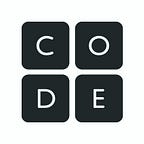The pandemic hasn’t stopped Colombian teachers from learning how to teach CS
It was a warm July afternoon when Luz Derly Chavez Pino drove back from a rural town in the Cauca department of Colombia, where she was spending her days during the pandemic, to the small city of Popayan where she has been teaching information technology for more than 10 years. She wanted to be in a building with good connectivity because she was about to share how she teaches computer science fundamentals with hundreds of fellow teachers from all over the country, seeking to inspire them to enroll in a new national online workshop program.
Computer science workshops for teachers is not new in Colombia. Just last year Code.org partnered with Computadores para Educar — a government agency in charge of executing the education technology strategy alongside the Ministry of Education and the Ministry of Information and Communications Technology — to provide workshops for 180 teachers, so they could start teaching computer science to elementary students in the city of Popayan and the surrounding areas.
Workshops for new computer science teachers
Among those teachers who took a workshop was Chavez Pino. She has always been driven by her students’ curiosity and sought out professional development opportunities to learn new skills and equip her students, many of whom live in rural areas, to become responsible users of technology. She wanted her students to analyze and understand how technology works. Beyond comprehending computer science concepts, she wanted them to see themselves working in tech, creating technology and solving society’s most pressing problems.
One of Chavez Pino’s students was so excited to learn about the topic of digital citizenship that she “went home and taught her parents and grandparents about password security and information sharing on social media!” said Chavez Pino. In another instance, a student took home disposable cups to show her parents how functions and circuits work. “These two occasions,” Chavez Pino added, “counter the stereotype that if a notebook doesn’t have something written in it, then the student must not be learning anything.”
As the workshops in Popayan wrapped up in November 2019, Code.org’s CEO Hadi Partovi attended the closing event and guided a student to code a Dance Party. Over 1,800 elementary students have since learned about computer science!
With a national school closure enacted at the start of the school year due to COVID-19, Computadores para Educar couldn’t do the expanded training they wanted to pursue in 2020. But that didn’t stop them. In late July 2020, they launched PrograMartes to reach more than 2,000 teachers, all of them learning from home.
PrograMartes consisted of eight 60-minute master classes, delivered in Spanish by Florida-based Computer Science Fundamentals (CSF) facilitator Cristy Charters, and co-hosted by Henry Angulo from Computadores para Educar. Every Tuesday evening, Charters and Angulo went live on YouTube to teach Code.org’s CSF Express course to Colombian teachers. Why Tuesday nights? PrograMartes is a play on words for the Spanish translation of programming and Tuesday, hence Program + Martes.
PrograMartes only wrapped up a few weeks ago but was considered a huge success in terms of viewership. Their YouTube videos have more than 9,000 views.
In addition to hosting the episodes, Charters went above and beyond and shared tips for each lesson. She said she understood the limitations of virtual teaching. “This experience taught me to be more hands-on because we need to close the feedback loop with the teachers and provide more spaces for them to interact,” said Charters. Code.org also offers a teacher forum category for CSF in Spanish, where teachers can now share their progress, projects, and questions.
“To ensure teacher engagement throughout the training the concept of transmedia is crucial,” Angulo said. “We needed to deliver information in different channels, equip teachers with additional resources, respond promptly to their needs, and guide them through the process and content so they’d be able to contextualize and implement it in their classrooms more effectively.”
Reaching remote learners
Due to the global pandemic, these additional resources to complement virtual training can foster an online community and incentivize teachers to engage more thoughtfully with their students. However, students and teachers in remote locations have little to no connectivity. To mitigate this, the professional development opportunities offered by Computadores para Educar is multifaceted and includes synchronous and asynchronous work, as well as online, offline, and unplugged activities.
To reach teachers and students in rural areas, like many of those children that Chavez Pino has been teaching in Popayan, Computadores para Educar is launching additional training opportunities this year that will include hand delivering a box with printed resources to do unplugged activities. The organization has been also delivering thousands of devices for families whose students don’t have any laptops or tablets to continue learning.
Chavez Pino hopes she isn’t the only teacher in her school teaching students not just how to create technology, but also how to use it. The efforts and investment by Computadores para Educar certainly signal a push toward disseminating these foundational skills to Colombian children.
Schools may still be closed in Colombia for in-person learning, but more teachers are now ready to bring this foundational knowledge to thousands of students all over the country.
-Lara Sepúlveda-Machado, Code.org International Partnerships Manager for Americas
